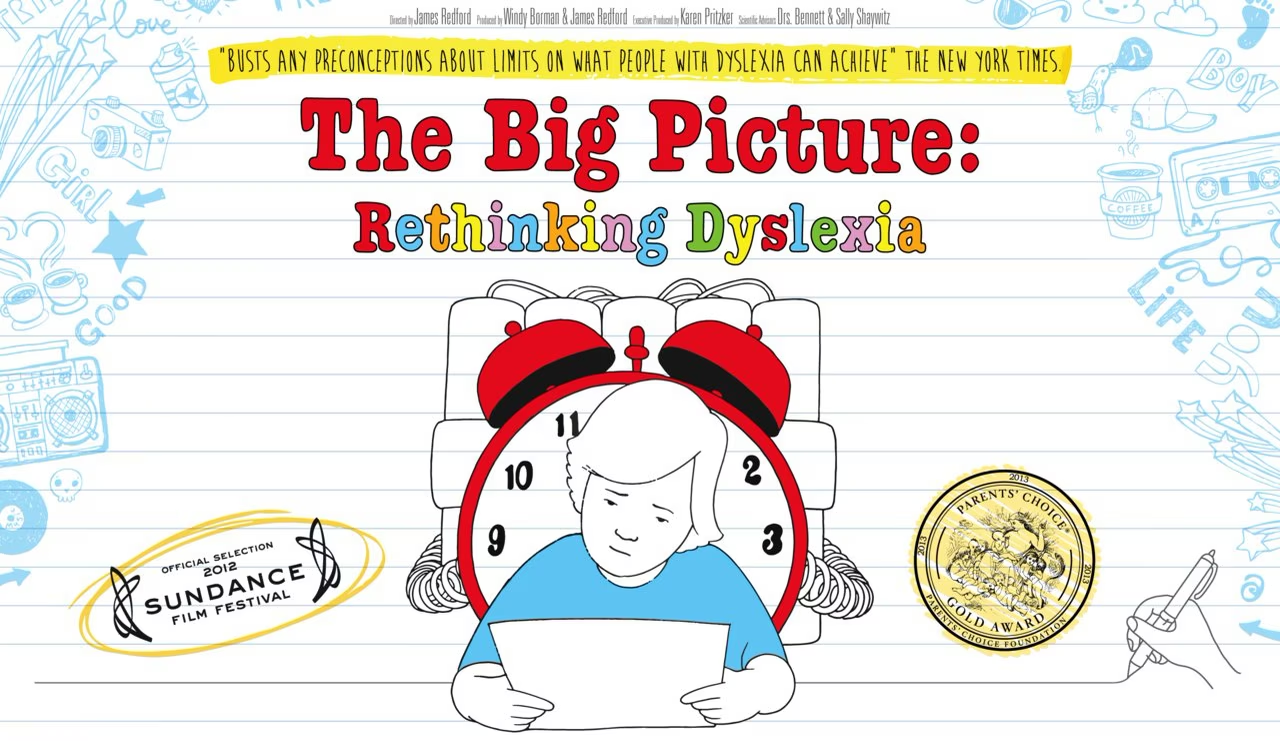Welcome to the Dyslexia at Home Tips for Parents by Parents guide.
Dyslexia as Brilliance to Encourage
Hey parents,
Email used to feel like a simple joy, remember? A way to connect with loved ones near and far. But over time, it became cluttered. With all the information available online, searching for resources to parent and support your dyslexic child can feel that way.Â
The amount of information online should not get in the way of raising a unique mind.Â
Just as modern messaging tools have reinvented email to recapture its magic, it is time we reimagine the information that helps us. Today we share 10 unique insights, recommendations, and Dyslexia at home tips for parents to support your dyslexic child.Â
We hope these tips and opinions help renovate the brilliant reality of your child’s incredible system.
Remember that Dyslexia has some incredible strengths that, when supported, help your child thrive:Â
- Unique out-of-the-box perspective and problem-solving skills
- Mesmerizing creativity and innovation
- Strong resilience and empathy
Your child’s dyslexic mind is a treasure.
With the right tools and perspectives, you can help them rediscover the joy of learning, problem-solving, and succeeding their way.
So, let us begin.Â
10 Dyslexia at Home Tips for ParentsÂ
What can I do if my child has a hard time remembering names, places, etc.?
For example, my child is finding it hard to remember the names of family members. When I ask them to name their grandparents, aunts, uncles, etc., they often have trouble recalling the names.
Tip: “Sing the words to remember or make a funny rhyme. Add movement.”
Tip: “Association is very important and filling memory ideas can help your child to remember words.”Â
How can I help my partner understand and accept that our 8-year-old likely has Dyslexia, Dyscalculia, and potentially Dysgraphia?
Tip: “Watch “The Big Picture: Rethinking Dyslexia“. It was very helpful for my partner. Try encouraging them to research more on all the successful famous dyslexics. Eventually, my partner became my child’s best advocate.”
Insight: “This is difficult but, unfortunately, not that unusual. Sometimes it happens because the other parent also has similar difficulties and there is guilt associated with that. Sometimes, it is something else. If you can get your partner to read books or articles about Dyslexia or watch videos or webinars, I would encourage that. Have them do a Dyslexia simulation if possible. However, some spouses just never get involved or understand it, so you have to be the one who advocates for and supports your child.”
➡️ Need an advocate’s support? Provide your details in this form, and we’ll connect you with the right person.

How can I break down learning addition math facts for my dyslexic child?Â
“For example, helping my kid more quickly recognize that 5+5 is 10 rather than having to count five and then five more manipulatives.”
Insight: “There is nothing wrong with using manipulatives for understanding addition as well as other math operations. Starting with additions to 10 is also going to be very helpful moving forward onto 2-digit numbers. That is exactly how you break it down. You are doing a great job.”Â
Tip: “Only a lot of practice will help your child to gain speed. Make it a fun game that your kid would want to play with you or with friends at any time. Not as schoolwork.”Â
Recommendation: “I found Tang Math Games to be perfect for that. Their games are seriously addicting, and the kids are having so much fun while learning math. There is no counting or memorizing. They are just playing a game and learning! Kakooma Plus is our favorite for addition and subtraction. They are inexpensive and available on Amazon. Definitely check them out!”

How can I get my dyslexic child to be motivated?Â
Tip: “Motivation is a term that is vastly misunderstood. Research motivation but figure out what motivates YOUR child. Example: one of my kids is motivated by play. So anything I can do to make a situation playful helps”.Â
Recommendation: “A couple of books you could read are: “Your Kid’s Gonna Be Okay” and “The Self-driven Child: The Science and Sense of Giving Your Kids More Control over their Lives“. If you can only read one, I recommend the second one”.
How can we support our dyslexic child when applying to colleges?Â
“Is it better to let the schools know in the application or would that negatively affect one’s chances for admission?”
Tip: “We are in the college application process now. First schools cannot legally discriminate against learning disabilities. When we look at schools we also visit the office of disabilities services. Ask questions about accommodations. We got a different answer on foreign language waiver at every school we went to. Even from state schools within the same state. The accommodations and requirements should be part of YOUR final decision-making process.”
Tip: “My son discusses his learning disabilities in his essay and in an interview he had. Not as an excuse but from the overcoming adversity standpoint”.

Any tips for organization and focus for ADHD and Dyslexia children without medication?Â
Tip: “My son does coffee*. He is older but has coffee to help him focus, especially when he needs to focus before tutoring. He did do medication during grades 4 and 6 but had terrible headaches, nausea, insomnia, and mood swings as side effects. In the end, he decided it was not worth it, and the school and his tutor were happy to work with him regardless. And yes, we tried every single medication that there was. Brand name. Non brand name. Stimulants and non stimulants. The side effects were just horrible for him. He does coffee now as a stimulant and is very active. He is a middle-distance runner who trains six times per week, and I swear that this helps him manage his hyperactivity.”
Tip: “Since you asked for nonmedication help and if your kid is overly energetic or hyper, get him physically active in any way you can. We have found that individual sports are better for my son than teams. Track and field, swimming, martial arts, or team sports if your kid likes them. I wish I had found these things sooner! This is my advice to parents when I see high-energy kids with trouble sleeping.”
Insight: “For my dyslexic/ADHD 9-year-old 3rd grader, meds were a real game changer. We started them in December and tried Adderall first, but it suppressed his appetite too much. So, we switched to Focalin, and it has been good. He went from level 6 in Dyslexia (beginning 1st grade) in early December to just completed level 9 (last level 1st grade) last week. His private tutor and teachers notice how much more he can focus and is not disruptive in class. The emotional meltdowns at home are not as bad as they were.”
🤔 In search of a tutor? Complete this form, and we’ll help you find the right match.
*Remember to consult with a licensed doctor before changing your child’s diet or giving medication.
Any recommendations for Spanish programs or tips that have been successful for a dyslexic learner?Â
“My 12-year-old is determined to learn Spanish.”
Tip: “I would skip the grammar if learning Spanish is not for school. Go for conversational speaking. My friend learned Portuguese by watching Sponge Bob. She had no language skills previously.”
Tip: “Dyslexics need structured literacy in every language they learn. So start with phonemic awareness, which should be easier than English because Spanish letters say their sounds. Find a good text or tutor who can teach it from the phonemes up.”
Any planner recommendation for my middle school kid? Any organizational advice?
“He has lost his lunchbox four times in the last three months, is falling behind on assignments, and is really overwhelmed as a whole.”
Tip: “I make my daughter’s planner. I make it unique to her and the things she likes (animals). She is in fifth grade. I print four at a time, punch holes in them, and put them in her binder.”
Tip: “What is he into? For instance, does he have a phone? You two could set up a variety of alarms and preset texts or use the calendar to assist. If he does not have a phone, is he a gamer? Use what he uses as a catalyst or trigger for his reminders.”
You can also find a printable back-to-school planner here.
How can I teach left and right to my dyslexic child?Â
“My son is dyslexic, so the left hand showing L does not work because he flips his L, but he is also ambidextrous, so trying to tell him to focus on his writing hand does not work because he writes with both!”
Tip: “I learned by feeling where my heart is.”
Tip: “When you read left to right, the L comes before the R. Your left hand is read before your right hand. I always second guess where the heart is or which one I write with, but the L shape comes first.”
How can I get my dyslexic child to do homework?Â
“It is such a struggle. I know because it is difficult, so she puts it off, but it still has to get done.”
Tip: “Sometimes my child dictates, and I write his answers exactly as he is saying them without changing them, or he types them up on his assistive technology.”
Tip: “Give her breaks. Thirty minutes of homework and ten to fifteen-minute breaks. Keep the room she is working in calm and quiet and even pull the curtains closed.”
Tip: “If it is spelling she struggles with, sing the letters to each spelling word. Seriously sing them with her. It will stick in her head. I did this starting fourth grade and got my first A on a spelling test! The letters can be sung with a beat to them, like in music. I am 61 years old now, and I still cannot spell ‘Physician’ or ‘Vacation’ without singing it in my head.”
We hope this Dyslexia at Home Tips for Parents guide has been useful for you. Continue reading more, for example, Are Dyslexia and Nutrition related?, My Child was Diagnosed, Now What?
Points of Action
- Get creative with memory aids like songs, rhymes, and movement to help your child remember words, names, and facts.
- Watch the insightful resources recommended by other parents, for example, “The Big Picture: Rethinking Dyslexia”, to understand your child’s Dyslexia. Â
- Break down math concepts into fun and engaging games or purchase games and pedagogic aids to help them with their homework.
- Make a list of what intrinsically motivates your unique child: play, physical activity, or choice. Â
- Explore non-medication options like coffee, physical activity, and individual sports to aid focus and organization.
- Get creative with customized planners, alarms, and reminders tailored to your child’s interests.
Key Takeaways
- There is no one-size-fits-all advice when it comes to parenting a child with Dyslexia. However, other parents’ experiences help craft your own. It is easier than going on the journey by yourself.Â
- Renovating your approach with the engaging and multisensory techniques shared on these Dyslexia at home tips for parents. Your child’s unique system can rediscover their joy with learning.
- The journey is not about “accommodating” but nurturing the brilliance within.Â
Disclaimer: This is not medical advice. Please consult with a licensed professional when in doubt. Lexicminds is not liable for actions taken from this page. Images of books are shared solely for reference purposes. All rights to the images and content of the books are owned by their respective authors and publishers.



![How can I teach my dyslexic child left from right? [On the left] A heart picture [On the right] Two hands with fingers shaped as Ls](https://www.lexicminds.com/wp-content/uploads/2024/05/How-can-I-teach-my-dyslexic-kid-left-from-right.png)





